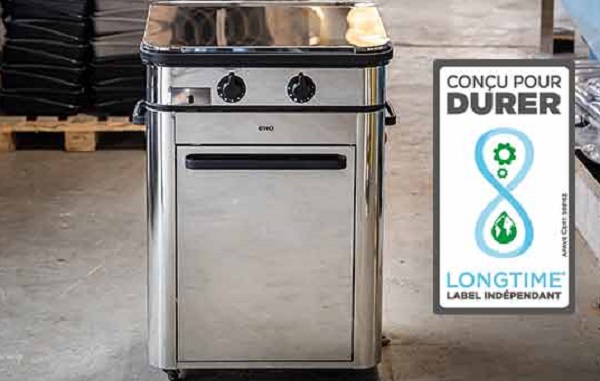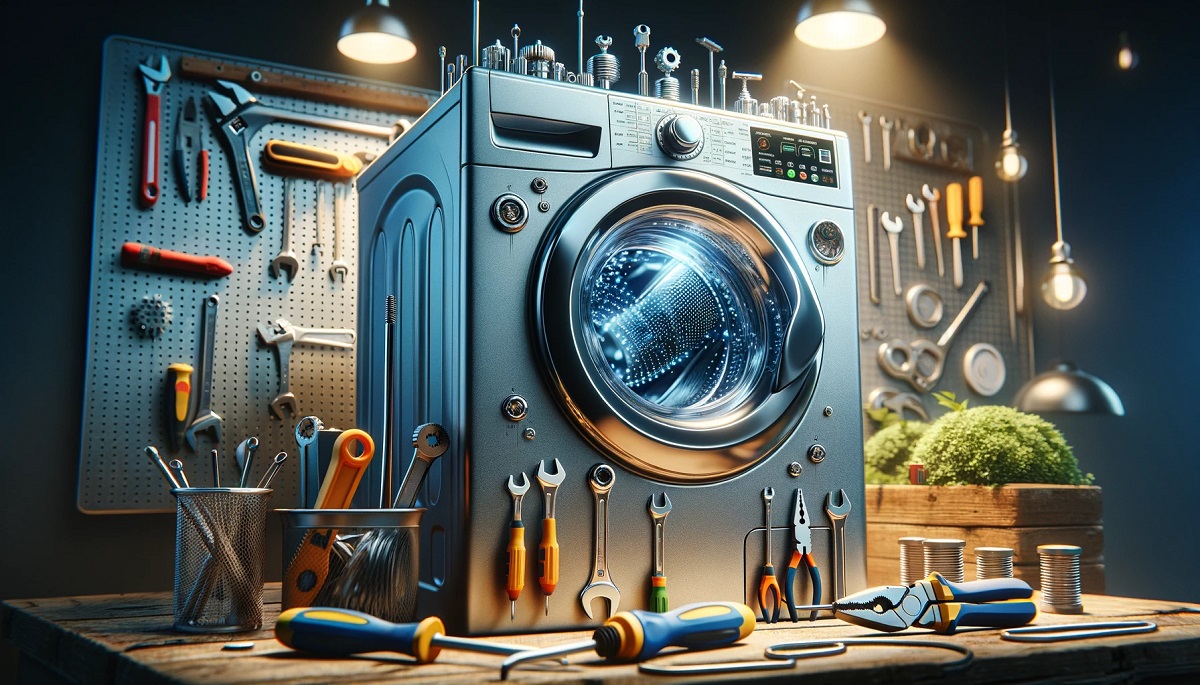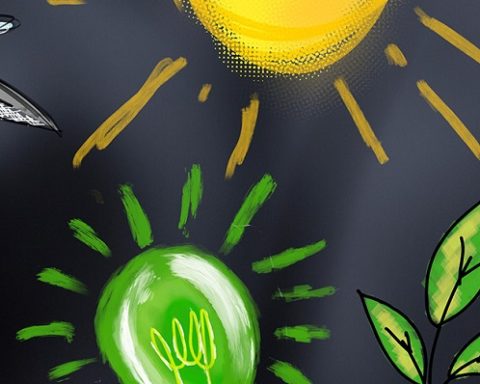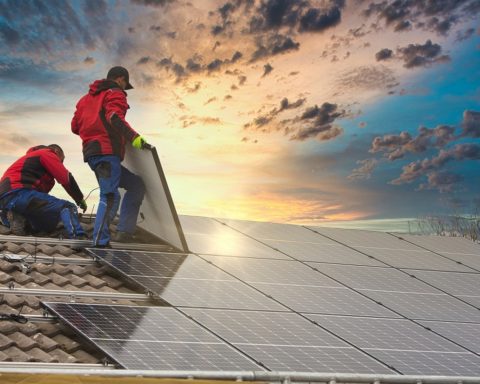In a world where sustainability is becoming the central focus of innovation, Europe, with France at the forefront, is embracing a decisive shift towards a more responsible economy. In 2024, the introduction of the sustainability index for household appliances such as washing machines and televisions marks a crucial step in this transition. On this occasion, manufacturers and industrialists, labelled Longtimehave decided to take action to meet the challenges at hand, by adopting a voluntary approach. which is taking the lead in rethinking our relationship with consumption. By promoting sturdy, reliable and repairable products, these entrepreneurs aim to get to the root of waste and pave the way for environmentally conscious consumption. For them, "True innovation today is sustainability". This article highlights their commitment.
Foreword
Repairability and sustainability are topical issues in Europe. At the request of the HOP (Halte à l'obsolescence programmée) association and other stakeholders, a National Repair Council met for the first time on September 15. It brought together a representative panel of players from the repair sector. The next Conseil national de la réparation will be held on March 20.
On the one hand, the European Parliament and Council reached agreement on February 1ᵉʳ on the draft "right to repair" directive. On the other, the French Ministry of Ecological Transition abandoned the durability index on smartphones in France, following the European Commission's unfavorable opinion. Crucial battles at European level to make our products last as long as possible
The European Union strengthens the right to compensation
The European "right to repair" directive is a text designed to simplify and make more accessible the repair of objects for consumers. An arsenal of innovative measures has been negotiated, thanks in particular to pressure from the European coalition Right to Repair, of which the HOP association is a member. The European Parliament and Council reached agreement on this draft directive on February 1ᵉʳ.
These new measures are therefore to be welcomed, such as spare parts, which must now be offered by manufacturers at reasonable prices that do not prevent repair. Or the obligation for manufacturers to repair a product outside the legal warranty if the consumer so requests. However, the scope of the text is still unclear, as certain terms remain broad and imprecise.
Flavie Vonderscher, HOP Advocacy Officer, has deciphered the text's proposals and offers its analysis.
To go further : HOP Report on the impact of the repair bonus for electrical and electronic products
________________________________________________________________________________
Every minute in France, more than 2 tonnes of electrical and electronic waste are produced. (1). Although the recovery of this waste is constantly increasing, the scarcity of resources and their rational use oblige us, the manufacturers, to seek sustainability in order to respond better and faster to the environmental challenges facing our societies, and in line with the expectations of citizens.
In addition to legislative changes, our challenge today is to develop production practices to minimize the impact of our businesses. It is imperative that technical and technological advances also lead to ecological progress, in particular through the design of reliable, repairable products.
Ecological challenges for a circular economy
The circular economy, which aims to preserve resources and limit environmental impact, has been gaining notoriety over the past decade or so. The law on the fight against waste and the circular economy (AGEC) of February 10, 2020 reflects this new vision of our economy. In particular, it has made it possible to promote the extension of product lifespans, with the introduction of the reparability index, thanks to the assignment of a score to a few product categories. This popular tool for raising consumer awareness will be replaced and strengthened in early 2024 by the Repairability Index.sustainability index which incorporates new criteria such as robustness and reliability.
These approaches meet the expectations of the French, who are becoming more responsible and increasingly see themselves as stakeholders. consum'acteurs active in the fight against climate change. In 2022, 76% were mobilized to promote responsible consumption. (2). Nevertheless, there are still obstacles, and consumers are particularly critical of the current range of responsible products.
We, manufacturers and industrialists, must continue to innovate in a proactive way and propose a virtuous offer of robust, reliable and repairable products. Aware that production generates impacts, it is our duty to pivot our modes of production to be locomotives of the transition, by offering consumers the possibility of choosing to buy products with an extended lifespan.
Sustainability for innovation: a new ethic for manufacturers
In this context, paradigms are changing. Just as the origin of manufacturing is seen as a marker of reindustrialization, product sustainability is becoming a true indicator of innovation. Eco-design and sustainability are to be promoted alongside new product technologies, in line with consumers' economic and ecological expectations. All players have the power and the duty to mobilize: manufacturers, local authorities, prime contractors, key accounts, distributors...
Babymoov®, a French nursery brand, has set up a new business model based on second-hand products and the circular economy, buying back products from consumers, reconditioning them and reselling them at affordable prices. This is made possible by the durability of the products, which have been designed from the outset to be easily repairable.
Dot-Drops, the case brand, has decided to simplify the assembly diagram of its cases as much as possible, so that 95% repairs can be carried out by the customer at home. It also guarantees access to spare parts free of charge for 20 years, to ensure the suitcase's longevity of use and durability.
Even when it comes to so-called essential goods like heating, we are able to offer sustainable and responsible solutions. For example, UNIV'R Chauffage designs and manufactures radiators that can be repaired for life, either by replacing the original part with an identical one, or by replacing the old part with a new-generation one.
Santos, a French manufacturer of (electrical) equipment for cafés, hotels and restaurants since 1954, makes and uses the same grinding wheels on 8 of its coffee grinders, which can also be adapted to older models, to facilitate and optimize maintenance.

Labelling: greater clarity for consumers, a milestone for manufacturers
The challenge now is to enhance the value of these innovations and make them easier to understand in the marketplace. The creation of transparent, reliable labels is one way of doing this. Longtime® (3) is just one example. Conceived and designed by the Toulouse-based French company EthikisThis European label is intended for durable and repairable products, to combat programmed obsolescence and better guide consumers in their purchasing decisions.
The label Longtime was created to inform consumers about durability of products and encourage the improvement of industrial practices. It is the first, and for the time being the only, product lifespan predictor based on 41 criteria such as choice of materials, repairability and technical support. It was awarded the Circular Economy Prizeis in line with the draft European directive Green Claims to fight against greenwashing, and has become a case study for the UN (United Nations Organization) through its One Planet Network.
The rigor of this label, which is supported by a cooperative society, contributes to helping consumers make concrete choices. For manufacturers, it is proof of a sincere commitment to promoting the circular economy and eco-design, in line with best practice on environmental claims.
Convinced by these issues and determined to make progress in our actions, we are today inviting as many players as possible to provide consumers and public authorities with a clear, well-equipped response to raise production practices.
Tribune Libre Celia Grignon, Managing Director, Babymoov'Group ; Julien Ehret, CEO, Dot-Drops ; Moïse Déglon, General Manager, Deglon ; Nicolas Fouquet, Director, Santos ; Bruno Giorgi, Managing Director, UNIV'R Chauffage ; Pierre Marcel, President, Tournus Equipement ; Aurélie Rochefolle, Communications and CSR Manager, Whirpool France ; Juliette Manson, Public Relations & External Communications Manager, Pellenc Group ; Hugues de La Bardonnie, Managing Director, SARL Développement durable; Guillaume Gipouloux, Managing Director, XP Metal Detectors; Pascal Oville, Product Manager, Socamel; Jean Julien Urbain, Managing Director, Ester Organisation; Arnaud du Mesnil Managing Director, Lafuma Mobilier; Xavier Caro, Marketing and Communication Director, DE'LONGHI France; Antoine Thomas, President, ENO; Yann Denance, Managing Director, INOVALP - LONGTIME® label holders
(1) ADEME Report 2021 Electrical and electronic equipment 2020 data
(2) GREENFLEX - ADEME Barometer of Responsible Consumption 2022
(3) Independent label created by Toulouse-based start-up Ethikis ad Civis founded in 2017 by Elsa Lomont and Florent Preguesuelo to contribute to the rise of responsible consumption and the preservation of the planet. The creation in the form of a participative cooperative company (SCOP) of this innovative start-up reflects the societal commitment of its founders. Longtime® labels products that are robust, repairable and built to last. By encouraging consumers to choose better and manufacturers to produce better, the label aims to contribute to the preservation of planetary resources and the reduction of premature waste. It is supported by ADEME, the Occitanie region and BPIfrance. Ethikis was awarded the European Commission's "Seal of Excellence" certificate for the project "LongtimeE®, Best practices and guideline to support and promote product longevity.
Header photo : ©UP' Magazine











